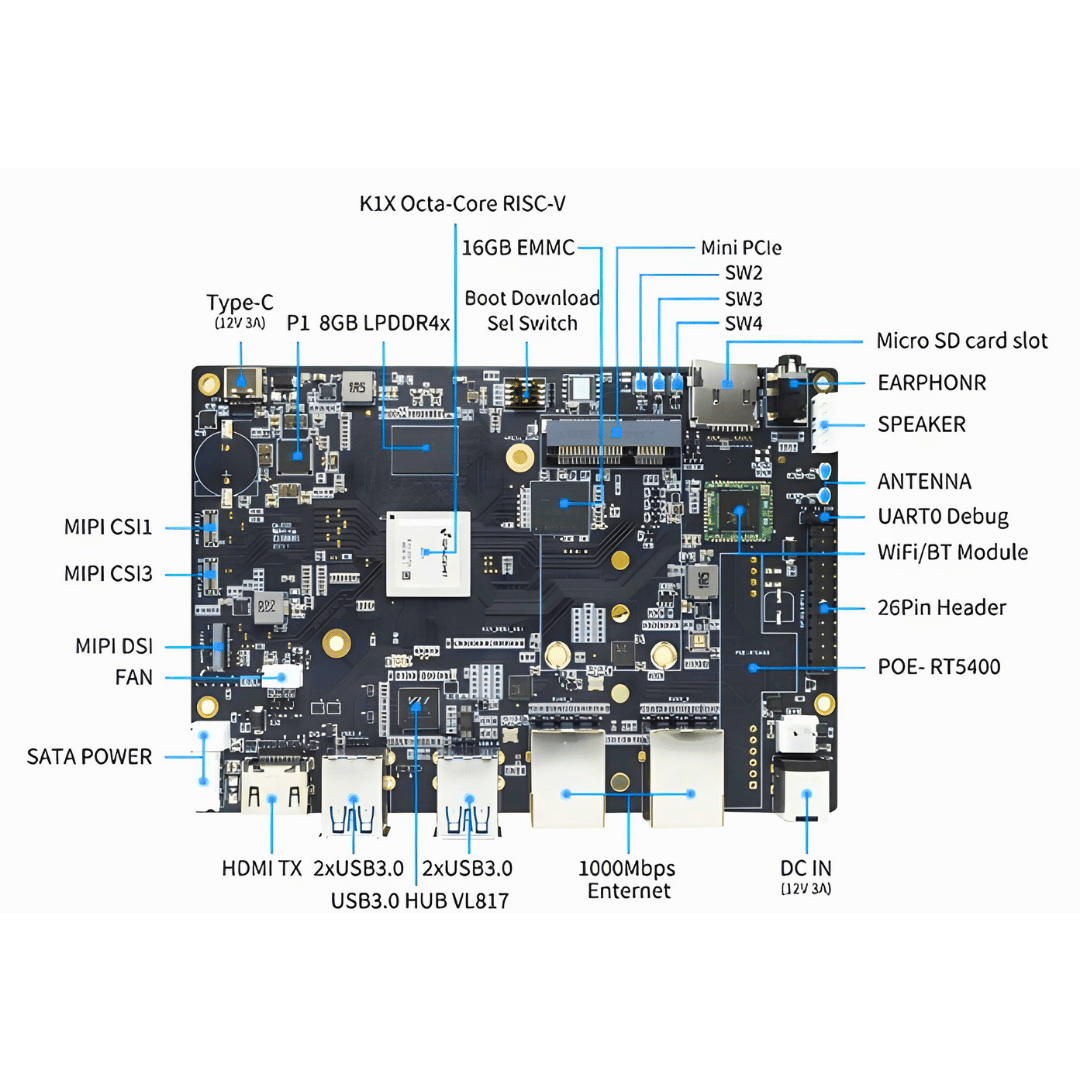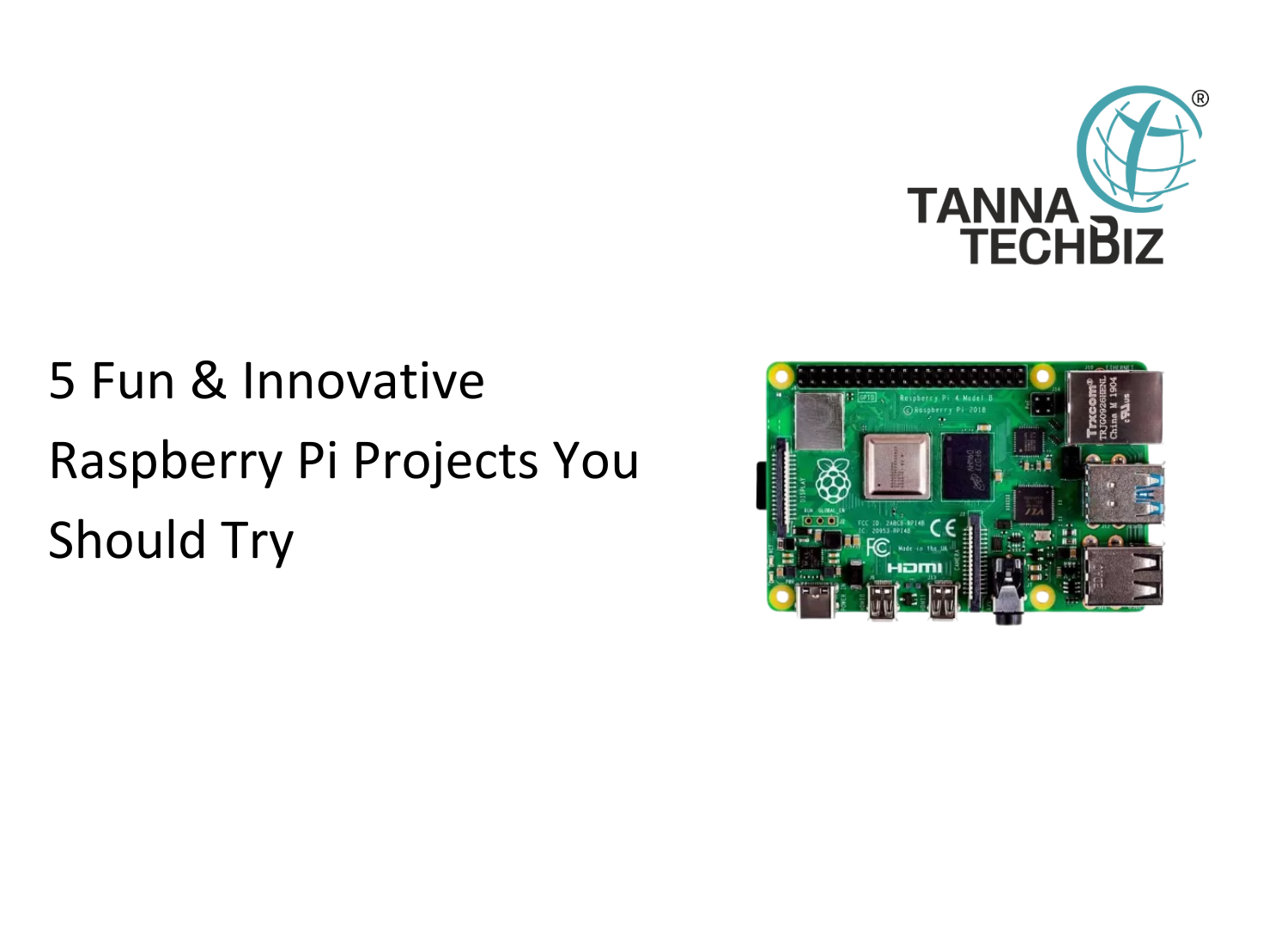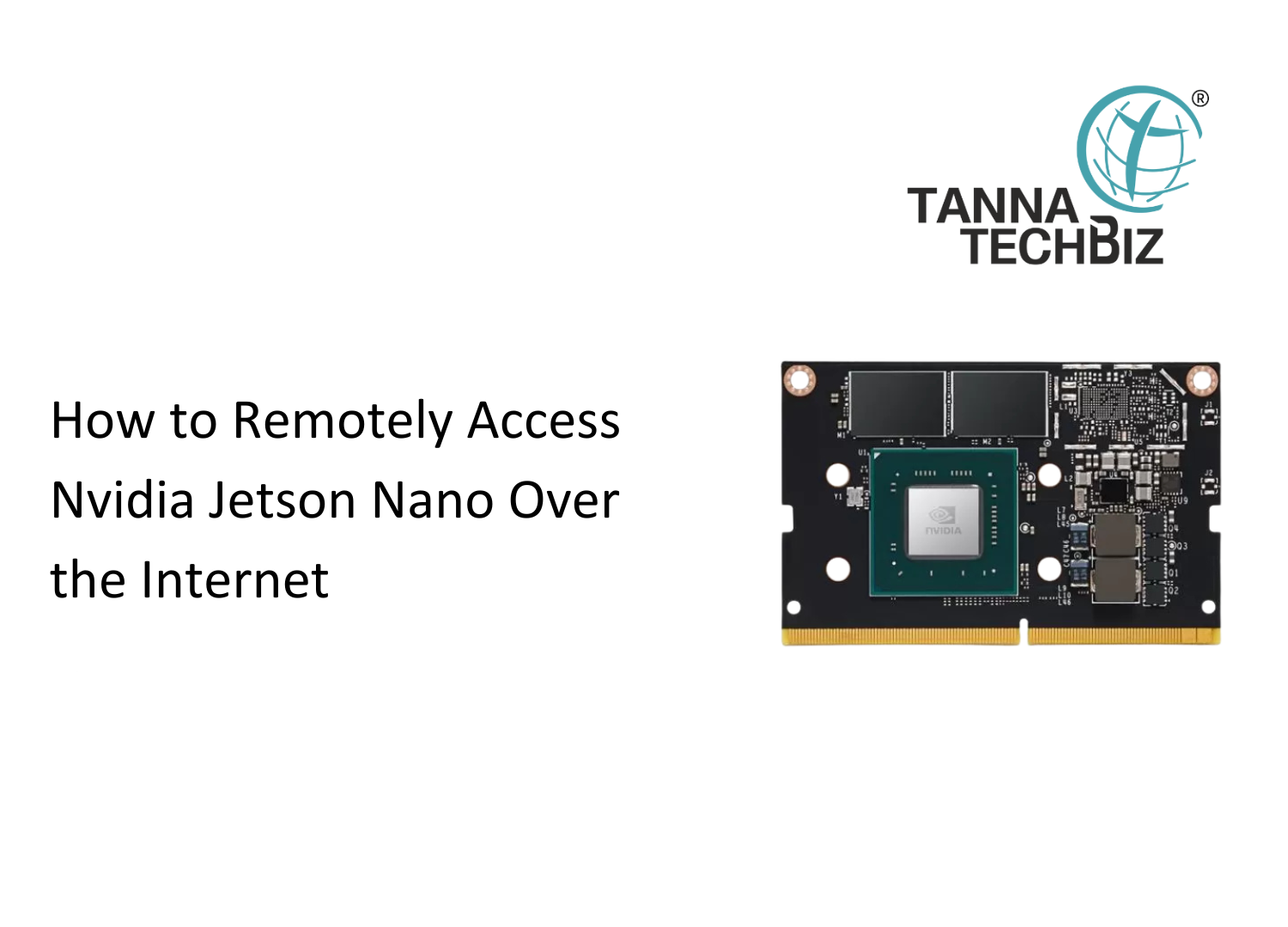Revolutionizing Single-Board Computers: A Thorough Guide to the Banana Pi F3 Series
July 30, 2024 178

Revolutionizing Single-Board Computers: A Thorough Guide to the Banana Pi F3 Series
Introduction
Single-board computers (SBCs) have changed the way we do computing by offering high-performance, tiny-sized and affordable options for various uses. Among these is the Banana Pi series which has a unique performance and flexibility. In this blog, we will explore the Banana Pi F3 series with emphasis on two models: the Banana Pi F3 (2GB RAM + 8GB eMMC) and the Banana Pi F3 (4GB RAM + 16GB eMMC). We will look at their attributes, how well they perform as well as their applications in relation to other SBCs in the market.
Overview of the Banana Pi F3 Series
Banana Pi F3 (2GB RAM + 8GB eMMC)
The Banana Pi F3 (2GB RAM + 8GB eMMC) is an industrial RISC-V compliant development board that caters for different computational needs. It offers good performance reliability and flexibility thereby making it a great choice for projects that require proper results.
Key Features
An 8-core RISC-V chip: The CPU integrates 2.0 TOPs AI computing power, making it ideal for AI and machine learning applications.
Memory and Storage: 2GB LPDDR4 RAM and an onboard storage of 8GB eMMC have been provided to facilitate operation smoothly and ample space for applications.
Connectivity: Comes with 2x GbE Ethernet ports, 4x USB 3.0 ports, and PCIe for M.2 interface.
Multimedia: HDMI output as well as dual MIPI-CSI camera interfaces are supported.
Operating Temperature: Well suited for industrial environments that can be anywhere from -40°C to +85°C.
Banana Pi F3 (4GB RAM + 16GB eMMC)
The Banana Pi F3 (4GB RAM + 16GB eMMC) is a part of the advanced model in the series F3 that offers better performance with more memory and larger storage capacity. This makes it suitable for more demanding applications and complex projects.
Key Features
8-core RISC-V chip: Also integrating a computing power of Artificial Intelligence at a speed of up to 2.0 TOPs just like in the case of the above mentioned model having only two gigabytes capacity.
Memory and Storage: Upgraded to four gigabytes LPDDR4 RAM alongside sixteen gigabytes eMMC storage thereby leaving behind some room for these programs or information amounting thereto.
Connectivity: It also retains its connectivity strength by featuring two GbE Ethernet ports, four USB3.0’s ports along with PCI-E which can accommodate an M.2 interface card connected through an adapter board to any NVMe solid-state drive via connection of pins on those drives’ printed circuit boards (PCBs).
Multimedia: Complete HDMI output plus dual MIPI-CSI camera interfaces support this feature.
Operating Temperature Range: -40°C to +85°C.
Hardware Interface:


Hardware Specifications
| Specification | Banana Pi F3 (2GB RAM + 8GB eMMC) | Banana Pi F3 (4GB RAM + 16GB eMMC) |
|---|---|---|
| CPU | SpacemiT K1 8-core RISC-V chip | SpacemiT K1 8-core RISC-V chip |
| AI | 2.0 TOPs from RISC-V Core | 2.0 TOPs from RISC-V Core |
| Memory | 2GB LPDDR4 | 4GB LPDDR4 |
| Storage | 8GB eMMC | 16GB eMMC |
| Ethernet | 2x GbE Ethernet | 2x GbE Ethernet |
| USB | 4x USB 3.0, 1x USB 2.0 Type-C | 4x USB 3.0, 1x USB 2.0 Type-C |
| HDMI | 1x HDMI (up to 1080p@60fps) | 1x HDMI (up to 1080p@60fps) |
| Camera | Dual MIPI-CSI | Dual MIPI-CSI |
| PCIe | PCIe 2.1 2-lane | PCIe 2.1 2-lane |
| Size | 148x100 mm | 148x100 mm |
| Weight | 200g | 200g |
Benchmarking and Performance
Banana Pi F3 (2GB RAM + 8GB eMMC)
Performance
The performance-optimized Banana Pi F3 series, which includes the 2GB RAM version, can be used in many applications. It is well equipped with an 8-core RISC-V chip that operates for general computing tasks, AI processing and multimedia.
Benchmark Tests
In a benchmark test, the Banana Pi F3 (2GB RAM + 8GB eMMC) shows to have good results in terms of moderate computing power requirements. It stands out particularly on its AI functionalities making it very possible for project that require application of artificial intelligence.
Banana Pi F3 (4GB RAM + 16GB eMMC)
Performance
Among other things, applications which use memory intensively and have big data will find the performance of the 4 GB Ram model more satisfying. The increase in memory aids smoother multitasking and handling of substantial datasets.
Benchmark Tests
The comparison of the Banana Pi F3 (4GB RAM + 16GB eMMC) against its 2 GB counterpart using benchmarks yields better performance especially when it comes to multimedias tasks involving AI computations. This design is ideal for complex projects that are more demanding.
Applications and Use Cases
IoT Projects
Due to its powerful processing capabilities and extensive connectivity options, the Banana Pi F3 series is a great choice for IoT projects. It comes with two GbE Ethernet ports, as well as many USB ports, which make it capable of being used in various IoT scenarios like smart home systems, industrial automation or remote monitoring solutions.
AI and Machine Learning
Banana Pi F3 series has an integrated AI computing power making it suitable for AI and machine learning projects. The 2.0 TOPs AI performance allows efficient handling of machine learning models that makes it useful to developers working on image recognition, natural language processing or predictive analytics which are AI driven applications.
Educational Projects
The Banana Pi F3 series provides an excellent platform for educational purposes. It has powerful hardware and versatile connectivity options thus it can be used to teach computer science, electronics and robotics. Students can learn programming using the Banana Pi F3, hardware interfacing as well as system design.
Comparing with Other Companies
Banana Pi F3 vs. Raspberry Pi
Several important distinctions and benefits can be observed when comparing the Banana Pi F3 series to popular models of Raspberry Pi:
- Performance: The Banana Pi F3’s 8-core RISC-V chip has a better AI processing capability than most Raspberry Pi models.
- Memory and Storage: These are more memory-intensive applications for which the F3 models provide larger RAM sizes and onboard storage options.
- Connectivity: As it has more USB 3.0 ports and dual GbE Ethernet, compared to the other SBCs, Banana Pi F3 is preferable in connectivity.
- Expansion: By having a PCIe interface, the Banana Pi F3 series provides room for additional hardware components to be added.
Other Competitors
The performance of the Banana Pi F3 series is on par with that of other Single Board Computers (SBCs) in terms of connectivity, expandability, etc. Its industrial grade design together with its wide range operating temperature makes it ideal for rugged environments and mission critical applications.
Where to Buy and Pricing Information
The Banana Pi F3 is available for purchase at Tannatech Biz:
Prices vary based on the configuration, with higher RAM models costing more due to their enhanced capabilities.
Conclusion
Offering versatile functionalities combined with powerful specifications, the Banana PI F3 series is a comprehensive solution that caters to diverse computing requirements. Be it IoT projects or artificial intelligence machines or even educational systems; there are many reasons why you should go for this one due to its reliability as well as high performance products provided by Banana PI F3.



